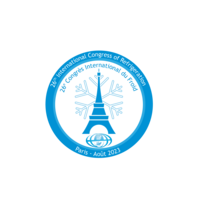
Document IIF
Influence du fluide actif ternaire NH3-H2O-LiBr sur le COP et la circulation de la solution dans un système frigorifique à absorption d'ammoniac.
The influence of NH3-H2O-LiBr ternary working fluid on the COP and solution circulation in ammonia absorption refrigeration system.
Résumé
Using NH3-H2O-LiBr ternary working fluid is an effective way to promote the performance of ammonia absorption refrigeration system (AARS). First, the experiment results indicated that 15% was the optimum LiBr concentration. The COP and the exergy efficiency of the NH3-H2O-LiBr ternary system were promoted up to 7.6% and 8.96%. Second, the negative effect of LiBr on circulation was small and the COP rose when the LiBr concentration was less than 15%. But the circulation ratio increased by 121% when the LiBr concentration reached 20%, which resulted in COP sharply dropping. Third, the absorber cooling load decreased by 18.7% at most in ternary system. The application of NH3-H2O-LiBr ternary solution is beneficial for the miniaturization of absorber and AARS. Finally, the viscosity of the NH3-H2O-LiBr ternary solution was measured. The results indicated that temperature and NH3 had more influence on solution viscosity than LiBr.
Documents disponibles
Format PDF
Pages : 11 p.
Disponible
Prix public
20 €
Prix membre*
Gratuit
* meilleur tarif applicable selon le type d'adhésion (voir le détail des avantages des adhésions individuelles et collectives)
Détails
- Titre original : The influence of NH3-H2O-LiBr ternary working fluid on the COP and solution circulation in ammonia absorption refrigeration system.
- Identifiant de la fiche : 30031645
- Langues : Anglais
- Sujet : Technologie
- Source : Proceedings of the 26th IIR International Congress of Refrigeration: Paris , France, August 21-25, 2023.
- Date d'édition : 21/08/2023
- DOI : http://dx.doi.org/10.18462/iir.icr.2023.0699
Liens
Voir d'autres communications du même compte rendu (491)
Voir le compte rendu de la conférence
Indexation
-
A COMPUTER MODEL FOR SIMULATION OF ABSORPTION S...
- Auteurs : GROSSMAN G., GOMMED K., GADOTH D.
- Date : 1987
- Langues : Anglais
Voir la fiche
-
Various physical properties of a working liquid...
- Auteurs : NEMOTO Y., NODA H., NODA M., et al.
- Date : 17/02/2010
- Langues : Anglais
- Source : Measures to address climate change. 2010 International Symposium on Next-generation Air Conditioning and Refrigeration Technology: February 17-19, Tokyo, Japan.
- Formats : PDF
Voir la fiche
-
Numerical evaluation of simultaneous cooling an...
- Auteurs : PARK S., YUN D., CHO H. U. , LEE N. S., KANG Y. T.
- Date : 05/2023
- Langues : Anglais
- Source : 14th IEA Heat Pump Conference 2023, Chicago, Illinois.
- Formats : PDF
Voir la fiche
-
Computationally efficient numerical modelling o...
- Auteurs : IRRGANG L., SCHIFFLECHNER C., KESTLER S., WIELAND C., SPLIETHOFF H.
- Date : 21/08/2023
- Langues : Anglais
- Source : Proceedings of the 26th IIR International Congress of Refrigeration: Paris , France, August 21-25, 2023.
- Formats : PDF
Voir la fiche
-
Matching heat sources cooling load and heat rej...
- Auteurs : DORGAN C. E., DORGAN C. B.
- Date : 17/09/1996
- Langues : Anglais
- Source : Ab-sorption 96. Towards sustainable technologies. Proceedings./ Ab-sorption 96. Vers les technologies durables. Comptes rendus.
Voir la fiche
